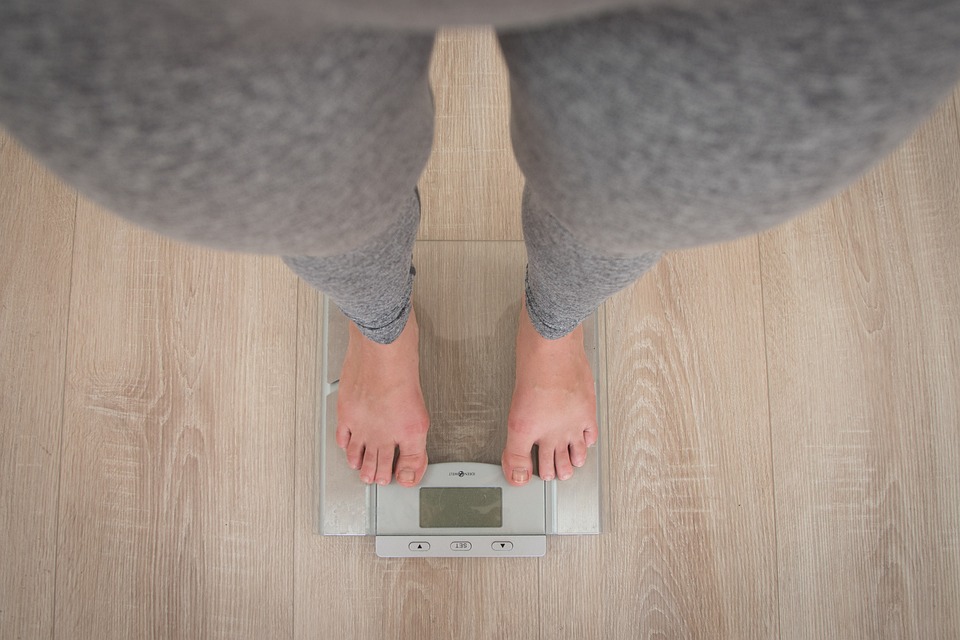If you are eating a lot of unhealthy foods and not exercising, you are likely to gain weight. If you are regularly eating fruits and vegetables, exercising, and still gaining weight, there may be underlying reasons. Health issues, menopause, stress, lack of sleep, and medications are all potential reasons why dieting may not work for you. Here are a few more reasons why you may not be losing weight even when you’re on a diet.
Sleep Deprivation
You use diet pills and protein shakes. Despite your efforts, you have not lost the weight you anticipated. Exercise is good and you follow exercise recommendations. Still not losing weight? Diet pills and drinks often contain more caffeine than what is stated on the label. This may be causing sleep deprivation.
When you don’t get enough deep sleep, your body goes into stress mode and starts storing more fat. If you are feeling exhausted, you may not be able to handle additional stressors in your life as effectively as you usually would. You may also find yourself turning to food as a way to cope, even if you aren’t fully aware that you’re doing so. Are you up late-night snacking to help you sleep? Some people believe that eating helps them fall asleep again, but it only ends up adding more calories to their daily intake.
Common signs of sleep deprivation include feeling tired and having low energy levels. People who are sleep deprived may also find it difficult to stay awake and may fall asleep easily. You may also be very irritable and difficult. Insulin may be your problem. If you’re not losing weight, and you’re feeling wired at night, your insulin levels may be to blame. Since you’re not losing weight, more stress is building up.
You should try to get at least eight hours of sleep per night. If you cannot sleep, try not to reach for a comfort snack and avoid using medications to induce sleep. instead of taking diet pills, try meditating and don’t exercise within two hours of bed
Stress Causes Weight Gain
The more you do, the more you will need to achieve. While stress can help motivate you and help you cope in difficult situations, it can also negatively impact your mood and emotions. If you have stress responses from juggling too many responsibilities, coping with financial problems, or relationship issues you will find that a biochemical process is triggered which can lead to health problems. If you are not eating enough, your body will go into survival mode and begin to store fuel in the form of fat. Metabolism slows down and cortisol and leptin are produced. Excess stress causes hormones that make fat accumulate in the abdominal area.
You will not be able to lose weight or burn fat if you are constantly stressed. If you’re not careful, stress can cause you to eat unhealthy foods that are high in cholesterol and calories. Stress eaters whose diets consist of high carbohydrates consume those foods in order to increase serotonin levels, which has a calming effect. Of course, they don’t think to themselves “I’m increasing my serotonin levels by doing this.” They just do it because it feels good.
Medications
There are many prescription drugs for treating depression, seizures, migraines, blood pressure, and diabetes that have weight gain as a side effect. The use of steroids, hormone replacement drugs, and oral contraceptives can lead to a weight gain of up to 10 pounds per month.
Some medications can make you hungrier and change how your body stores fat. Insulin levels change and more weight is gained . Antidepressants may not cause weight gain, but they can help you feel better, which may lead to increased appetite and, as a result, weight gain. There are also medications that cause your body to hold on to fluid, which can lead to weight gain. I am glad that this type of weight gain can be quickly fixed.
You should not stop taking your medications just because you have gained weight. Make an appointment with your doctor to talk about changing the dosage of your prescription, altering your diet habits, and becoming active.
Weight Gain and Medical Conditions
If you have hypothyroidism, you will definitely gain weight, no matter how much you diet. Hypothyroidism is a medical condition that occurs when the thyroid gland does not produce enough of the thyroid hormone. This hormone helps to regulate the body’s metabolism. Even though you may lose your appetite, you will still gain weight.
Check out your symptoms. If you are experiencing lethargy, swelling, a hoarse voice, intolerance to cold, and increased sleepiness, you should have your thyroid checked. There are tests which can easily determine whether you have hypothyroidism, and medication which can help to regulate your levels.
A disorder marked by an excess of cortisol production, known as Cushing’s syndrome, will lead to weight gain. Even if you are dieting, you will still gain weight if you are producing too much cortisol.
Menopause and Weight Gain
Typically, women who have reached menopause are in their early to late middle age, and they have less energy than when they were younger. As you age, your metabolism slows down and hormonal changes can cause you to feel hungry, have sleep problems, and feel depressed.
There are many factors that contribute to weight gain. There is no diet plan that can fix problems with depression, metabolism, and hormones. Your weight gradually increases around your waist. Estrogen is known to promote fat storage in the stomach area. When you lose estrogen you become more like a man.
Are you trying to lose a few pounds so you can fit into that great outfit for the night? One way to potentially lose weight quickly is to try a fad diet that promises quick results. Is losing weight in this manner healthy and diets like these effective? Absolutely not; stay away from fad diets.
Use diet pills to take care of excess weight? Many people use chemicals to control their appetite, but there is no clear evidence that this is healthy.
Other Reasons:
You’re way overestimating your muscle weight.
Put your hand up if you’ve ever had the following thought after stepping on the scales: “I’m still losing fat, I’m just working out really hard and gaining muscle.”
Dr. Weiner says that most of us have tried to lose weight by sweating it out, but it’s not an effective method because muscle is similar in density to water. This means that if you don’t change your weight-loss strategy, you may not lose any fat, even if you are trying to build muscle.
According to Dr. Weiner, a good thought experiment to compare the density of muscle to that of a common object is to compare one pound of muscle to a 16 oz. can of soda. You would see the results of adding that much muscle to your body.
This means that if you haven’t seen a change in your muscle mass, there may be another reason why you haven’t gained weight. You may want to consider making some changes to your diet to reduce your calorie intake, or try HIIT workouts to help you burn fat and increase your heart rate.
You’re eating less, but still picking unhealthy foods.
If you eat less than you burn, it is possible to lose 10% of your weight just through dieting, says Dr. Weiner. If you want to lose weight, you have to do more than just cutting calories. “You need to consume different types of food,” he states, “eating fewer calories overall while paying more attention to the nutrient content of what you eat.”
Gans explains that foods digest differently in our bodies, with some taking longer than others. Foods with lots of sugar in them are digested quickly, which means you’ll feel hungry soon after eating them. This is in contrast to foods that are rich in fiber. Fiber-rich foods help you feel fuller for longer and can be an easy way to lose weight.
If you order in delivery for dinner every night and eat fewer restaurant-prepared meals for lunch every week, you will lose weight at first, but eventually the weight loss will stop unless you make the switch to healthier lunches consis If you improve the quality of your calories and eat more filling foods, you will eat less overall, which can help you lose more than just 10% of your body weight.
Calorie deficits are when someone consumes less calories than their body burns in a day, which is a common weight-loss strategy. While it is necessary to pay attention to the amount of calories you’re taking in, it’s also important to focus on the quality of the calories, not just the quantity. Whole-grain foods are healthier than white bread. “The nutrient value will carry you much longer.”
You’re not keeping track of what you’re eating.
Judging ourselves favorably is something that comes naturally to humans, according to Dr. Weiner. This means that we tend to downplay our bad decisions and exaggerate our good ones.
Translation? You may feel proud of yourself for eating a salad on Tuesday, but this is offset by the fact that you ate two bowls of B&J for dessert. You may not be losing weight because of this. If you want to stay accountable for your caloric intake, Dr. Weiner suggests writing it down in a food journal or using an app. This will help you to be honest with yourself and eliminate any bias you may have.
Protein is generally beneficial as it makes you feel fuller (which leads to consuming less food) and also helps with muscle, skin, and bone health. Although all types of protein can contribute to weight loss, some are more effective than others. Dr. Weiner suggests that consuming too much animal protein and fat can lead to weight gain and other health problems such as diabetes.
Plant based proteins are found in legumes, nuts, seeds, and whole grains. They are different from other proteins because ________. According to Dr. Weiner, eating larger quantities of these types of foods will not have negative consequences for your health. The speaker has never seen a study suggesting that sources of plant protein like nuts cause weight gain.
You’re not looking at the big picture.
If you’ve been dieting for 3 months but have only lost 8 pounds, you might be feeling frustrated. Think about whether you want to lose weight quickly or over time.
Dr. Weiner says that we should view weight loss as a long-term problem instead of something that only requires a short-term solution. While there will be moments of high and low productivity levels throughout the day, similar to how stocks go up and down,
instead of fixating on losing weight in the short term, consider your weight changes over the past few years and how you want to feel in the future.
You’re not eating whole foods.
You might want to rethink your decision to skip out on diets that emphasize consuming whole, unprocessed foods (e.g. the Mediterranean diet). Nutrition experts know that food like fruit, vegetables, grains, and protein help with weight loss more then processed food.
A study published in 2019 showed that when people eat diets that are similar in nutrients, the group who consumes processed foods showed higher levels of caloric intake and weight gain than the group who focused on whole foods.
To make it easier to eat more whole foods, Cording recommends making them more convenient. That means stocking your pantry with items like frozen produce, oats, whole-grain bread, eggs, frozen fish, and leafy greens. “I keep spinach in the freezer so it’s always on hand. I add it to pasta dishes, rice dishes, and anything else where I can sneak it in.” She recommends adding spinach to soups, omelets, pasta dishes, and rice dishes, saying that it’s easy to do and that spinach is always on hand in her freezer. You can hard boil eggs in advance for a quick snack anytime you need one.
To make sure you eat more veggies, Gans recommends starting every dinner with a mixed green salad. According to the source, a way to get more fruit into your diet is to have it as your dessert for lunch and then add another serving at dinner.



